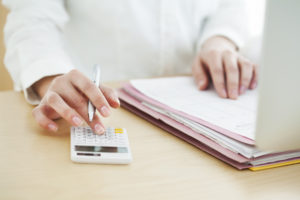When your bankruptcy ends you can essentially start your financial life over. This is an exciting time but you want to make sure that you are taking full advantage of the opportunity to start over. Read on to get eight ideas of what to do after your bankruptcy. If you have questions or have not yet filed, please contact a bankruptcy attorney by reaching out to The Law Offices of Paul Y. Lee at 951-755-1000 for a free consultation.
- Save your bankruptcy papers
- Make a list of the debts you still have
- Verify your balances on liens
- Update banking
- Set up automatic savings
- Join a credit union
- Take a look at your insurance coverage
- Look at your credit report
The bankruptcy schedules will have a list of all the people you were in debt to when you filed your bankruptcy. They all got notices of your case and the discharge gets rid of your liability to almost all of them. In the event a creditor sells your discharged debt and the buyer tries to collect it from you, you will have documentation of your bankruptcy.
If you have debts that were not discharged then you should make a list of them. Examples of debts that cannot be discharged include alimony, child support, some taxes, and student loans. If your discharge order does not have a list of what debts you still owe, then you should list everything you have to pay.
If you have liens on your assets, then those liens can survive the discharge. It may be that the creditor cannot legally sue you for payment, but they may be able to repossess of foreclose on the collateral if you do not pay. Talk to the holders of your mortgage or car loan and make sure you know what your payments are and when they are due.
It is often the case that automatic bill pay and online banking are disabled when you are in bankruptcy. Once your bankruptcy is over, you will want to reinstate these handy tools to help you better manage your money and rebuild your credit.
Many people feel nervous after a bankruptcy because they do not want to be in a precarious financial situation again. We recommend setting up automatic savings for an emergency fund and for retirement. It is easiest to do this if the savings are automatic.
In most cases, credit unions are more likely to lend money and will do so with better terms than a local bank. Join now so that you are an established member if you want to buy a home or car in the future.
If you surrendered property during your bankruptcy, then it could still be in your own name. You may choose to get liability insurance until someone else takes title.
A few months after your discharge, look at your credit report. Look to ensure that all discharged debts have a zero balance. If it is not listed correctly, ask your bankruptcy attorney how to get it corrected.


